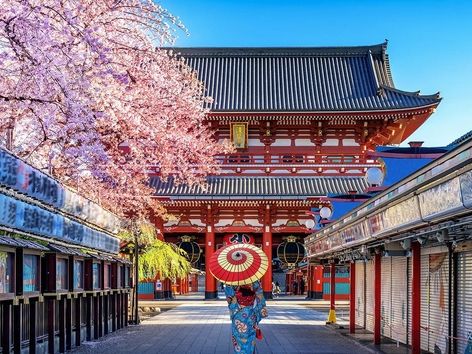Highly skilled professional visa in Japan (HSP) 2025: conditions, points, documents
Table of contents
- Who Can Apply for a Highly Skilled Professional Visa in Japan?
- J-Skip Requirements (as of 2025)
- Key Benefits of the HSP and J-Skip Visas
- HSP Visa Requirements and Points System
- Scoring Criteria (2025 Update)
- List of documents for obtaining a Japanese highly skilled professional visa
- How do I apply for a Highly Skilled Professional Visa to Japan?
- How long is a Highly Skilled Professional Visa in Japan?
- Visa processing period for highly skilled professionals in Japan
- How to extend a highly skilled professional visa in Japan?

The Japanese government has a highly skilled foreign professional entry system to attract talent to the country. The Japanese visa for highly skilled professionals is issued on a points system to foreigners who meet certain criteria. Find out how to get a Japanese visa for highly skilled professionals in 2025: updated requirements, points system, list of documents and tips for processing
As of 2025, the number of foreign workers in Japan continues to grow steadily, accounting for approximately 2.5% of the total population. Citizens of China, Korea, Vietnam, Kenya, Bangladesh and Uzbekistan are among the most frequently granted work permits, along with professionals from the US, UK, Germany and other countries.
One of the key instruments driving this trend is Japan’s Highly Skilled Professional (HSP) visa. In this updated guide, we explain how to apply, who is eligible for the visa and what has changed in 2025.
Choose a reliable health insurance policy on the Visit World portal to protect yourself from unforeseen expenses during your move. Support from a trusted insurance agent with a guaranteed payout in just a couple of clicks!
What are the pathways to obtain a residence permit for skilled professionals in 2025?
In 2025, there are two main routes for skilled professionals in Japan:
- Highly Skilled Professional (HSP) visa – based on a points system.
- Japan's Special Highly Skilled Professional System (J-Skip) - introduced in April 2023, an accelerated route without a points system.
Who Can Apply for a Highly Skilled Professional Visa in Japan?
The Highly Skilled Professional Visa in Japan is issued in three cases:
1. Advanced Academic Research Visa - for foreigners who will participate in teaching or research at a public or private organization in Japan.
2. Advanced Specialized or Technical Visa - for people who have specialized skills or knowledge in the natural sciences or humanities and who will work at a public or private organization in Japan.
3. Advanced Business Management Visa - for expats who will manage a public or private organization in Japan.
J-Skip Requirements (as of 2025)
To be eligible for a J-Skip visa in 2025, an applicant must meet the following requirements:
1. Have a master's degree + annual income of ¥20 million (US$1,206,272) or more.
2. Confirm 10+ years of work experience + income of ¥20 million (US$1,206,272) or more.
3. For business managers: 5+ years of experience + income of ¥40 million (US$2,412,544) or more.
Key Benefits of the HSP and J-Skip Visas
The Japanese Highly Skilled Professional Visa differs from the regular Japanese work visa in the following ways:
- A system according to which points are awarded for certain categories: age, Japanese language proficiency, level of education, academic achievements, professional qualifications, etc.
- A foreigner can apply for permanent residence after three years instead of waiting 10 years.
- If you score 80 points on the scoring system, you can apply for permanent residence after one year.
- The permit is granted for 5 years with the possibility of extension.
- Family relocation is allowed.
- Spouse is granted the right to work.
- You can engage in multiple activities under the Japanese Highly Skilled Professional Visa without having to obtain separate permission for each or change your status of residence
- Priority immigration lanes and support (J-Skip only).
- Ability to hire domestic helpers (J-Skip only).
HSP Visa Requirements and Points System
To apply for an HSP visa:
1. You must belong to one of the three eligible categories.
2. Earn at least 70 points under the 2025 updated system.
3. Work at a sponsoring company that submits your Certificate of Eligibility (COE).
Scoring Criteria (2025 Update)
- Education: Doctorate (30), Master's (20), Bachelor's (10).
- Work Experience: 10+ years (20), 3+ years (5).
- Annual Salary: 3 million yen (US$20,000) = 5 points, 10 million yen (US$67,000) = 40 points.
- Age: Under 30 = 15 points, 30–34 = 10 points, 35–39 = 5 points.
- Additional points:
1. Work in a subsidized organization (10)
2. Diploma from a Japanese university (10)
3. Japanese language proficiency (N1 = 15, N2 = 10)
4. Scientific achievements (up to 20)
5. Work in priority sectors (technology, green energy, artificial intelligence, etc.)
The evaluation form is available on the website of the Immigration Services Agency of Japan.
List of documents for obtaining a Japanese highly skilled professional visa
The detailed package of documents will vary depending on your profession and specific circumstances, but will usually include:
- Valid passport with photocopies.
- Passport-sized photo.
- Employment contract – documents with detailed information about your position in the company/organization, the salary you will receive and the duration of the employment.
- Proof of your academic qualifications (diplomas, certificates, etc.).
- Proof of previous professional training (employment certificate, letter of recommendation, etc.).
- If you are applying for a “change of residence status”: your current residence card, proof of previous tax payments
- Documents related to the organization that will employ you, such as company registration, profit and loss statement, etc.
- Any additional documents supporting your application (e.g. your Japanese language proficiency test results, proof of academic achievements, etc.).
How do I apply for a Highly Skilled Professional Visa to Japan?
Both foreigners who are abroad and expats who are already living in Japan can apply for a Highly Skilled Professional Visa. However, in either case, you will need to obtain a Japanese Eligibility Certificate for the actual visa application as the first step.
1. Applying for an HSP in Japan from abroad
- When you apply for a Japanese Highly Skilled Professional Visa while abroad, your sponsor (the company or organization that hired you) must apply for your Eligibility Certificate at the local immigration office in Japan.
- You must send the relevant documents to the company, as well as a score calculation form where you have indicated your qualifications and the relevant points.
- After the Immigration Bureau has reviewed your application (and if they find it acceptable), you will be issued a Certificate of Eligibility.
- Based on the Certificate of Eligibility, apply for a Japanese visa at the Japanese embassy or consulate in your country.
2. Applying for HSP for those residing in Japan
If you are already in Japan on another type of visa (such as a student visa or a standard work visa), you need to apply for a change of category to a Japanese Highly Skilled Professional Visa:
- You or your employer apply for a Certificate of Eligibility to the local Immigration Bureau in Japan.
- Submit all the required documents together with the score calculation form where you have indicated your qualifications and the relevant points.
- Once the Immigration Bureau has reviewed your application (and if they find it acceptable), they will issue you with a Certificate of Eligibility.
- Use the Certificate of Eligibility to apply for a “Change of Status of Residence” at your local Immigration Bureau in Japan.
How long is a Highly Skilled Professional Visa in Japan?
The Japanese Highly Skilled Professional Visa can be issued for 1, 3 or 5 years for the main applicant, his/her spouse and children.
Permanent residency is possible after 1–3 years depending on the total number of points.
How much does it cost to apply for a Highly Skilled Professional Visa in Japan?
Although there is no specific application fee for this special visa, expect to spend around 400,000 yen ($2,700) or the equivalent in your country of residence.
Visa processing period for highly skilled professionals in Japan
Applications for a Japanese highly skilled visa at a Japanese embassy or consulate abroad are processed within 5-10 business days from the date of submission of the package of documents.
Applications for a Certificate of Eligibility submitted to the Immigration Service are processed within 10 days.
If you apply for a “Change of Status of Residence”, the application is processed within 5 days.
How to extend a highly skilled professional visa in Japan?
Before the expiration of your visa, you can apply for a visa extension at the local Immigration Service office in your region of residence. The fee for the extension of the permit is ¥6,000 (or ¥5,500 if applied online).
In 2025, Japan continues to actively attract foreign experts through the simplified immigration mechanisms of HSP and J-Skip. If you meet the requirements for education, experience and income, you will be eligible for long-term residence, work in prestigious companies and even permanent residence in Japan in just a year. Careful preparation of documents, correct calculation of points and support from specialists are the keys to success when applying.
Need help with a visa to Japan? Our migration lawyers will help you: check whether you meet the requirements for HSP or J-Skip, prepare a package of documents, support the application for a certificate of eligibility and visa, protect your rights in case of refusal or delay.
Submit your application now and we will advise you on the best legalization strategy in Japan!
Reminder! Japan is one of the most attractive countries to live and work in, but its migration system is quite complicated. Foreigners planning to move in 2025 need to clearly follow a certain algorithm. We have already talked about possible ways of emigration, visa requirements, rules for legalization upon arrival and employment opportunities.
Frequantly
asked questions
Can you get a Japanese HSP visa without knowledge of the Japanese language?
What is the difference between HSP and J-Skip?
Do I have to be in Japan to apply for a highly skilled visa?
Recommended articles
2 min
Education
Studying in Japan in 2025: A Detailed Guide for International Students
Studying in Japan is becoming increasingly attractive to international students. The country offers high quality education and is known for its innovation, cultural richness and hospitality. However, moving to another country to study can be a complex process that requires detailed planning and preparation. Find out more about how to study in Japan in 2025
06 Feb. 2025
More details2 min
Expats
How to Move to Japan If You're from the U.S. in 2025: a detailed guide
Japan is a promising country for expats to move to, because it offers a moderate cost of living and career prospects. Learn how to move to Japan as a US citizen in 2024/2025
20 Nov. 2024
More details2 min
Residence permit
Cost of living in Japan: expenses for housing rent, food, transport and monthly budget
Japan attracts expats with its rich cultural traditions, delicious cuisine, technological advancements, and stunning natural beauty. However, before planning a move to Japan, it is important to determine whether the cost of living in the country is affordable compared to the country you currently reside in. Find out how much it will cost to live in Japan in 2024/2025
26 Nov. 2024
More details1 min
Travels
Japan is launching a new electronic travel authorization system, JESTA, which will make it easier for travelers from visa-free countries to enter the country. Find out what the online system is, who needs to get permission, the application process, and the estimated launch date
28 Mar. 2025
More detailsAll materials and articles are owned by VisitWorld.Today and are protected by international intellectual property regulations. When using materials, approval from VisitWorld.Today is required.
